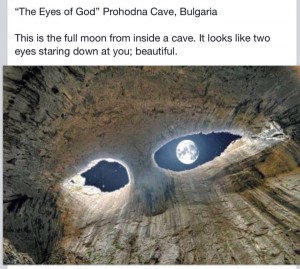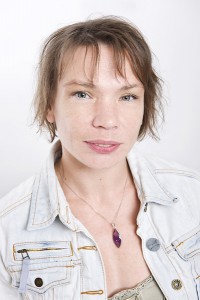God used to speak to people in dreams. Being the son of a preacher, Jung had to search for his own religion. The Red Book is a journal of this experience.
This is Mindfunda's presentation for the Dream Weekend organized by the Dutch society for dreamers: Vereninging voor de Studie van Dromen (VSD) . Unfortunately influenza payed me an uninvited visit. I was not able to attend the weekend. Aad van Ouwerkerk, author and dream worker read my presentation to the visitors. I thank him for doing that. This is a series of blogs about my proces of dreaming my way through the Red Book. I have divided it into five steps: Carl Jung Psychic Power and dreams Animus/anima dreams God the Self.

God in dreams tip #1: search for the feeling
God is often referred to as “the Father.” If you ever dream of your father, be sure to explore if he is not a symbol of your inner religion.
One of the things Jung aimed at when he started to explore his visions and dreams in detail was to re-define religion.
He was disappointed in his father Paul, a preacher who seemed only interested in religion as a sum of rules.
He was disappointed in his second father Freud, for dismissing the spiritual side of psychiatry. Only in his dreams after his father died did Jung get the spiritual guidence he needed from his father. In the Red book he says:
“If you do not know what divine madness is, suspend judgment and wait for the fruits. But know that there is a divine madness, which is nothing other than the overpowering of the spirit of this time through the spirit of the depths. Speak then of sick delusion when the spirit of the depths can no longer stay down and forces a man to speak in tongues instead of in human speech, and makes him believe that he himself is the spirit of the depths. But also speak of sick delusion when the spirit of this time does not leave a man and forces him to see only the surface, to deny the spirit of the depths and to take himself for the spirit of the times.” (“Decent Into Hell in the Future,” Cap. V).
On the site of Susan Olsen I found those two dreams Jung had about his father after his father died:
In the first dream, Jung is exploring a large wing of his house that he has never seen before. He finds a laboratory with shelves full of bottles containing “every imaginable sort of fish” and realizes that it is his father’s workroom. (MDR, p. 240f.) Next door is his mother’s room, in which she has set up beds for “ghostly married couples” to sleep. In his comments on the dream, Jung interpreted the fish as a Christ symbol and the beds as a “somewhat farcical” symbol of the coniunctio, the sacred marriage of the masculine and feminine principles. Although his parents were not seen in the dream, he felt their presence strongly and understood the dream to mean that “something had remained unfinished and was still with my parents; that is to say, it was still latent in the unconscious and hence reserved for the future.” Again Jung’s father (and in this case his mother) appeared “from within” as guiding figures who led him to his work on Christian symbolism in Aion (1951) and his study of alchemy and the sacred marriage in Mysterium Conjunction
In the next dream, Jung’s father is living in a large house in the country and working as the custodian of the tombs of several famous people. To his son’s great surprise, he is now a distinguished Biblical scholar. In his study he opens a large Bible bound in shiny fishskin and begins a learned exege- sis of an Old Testament passage. Then he leads Jung up a narrow staircase to a mandala-shaped room and points to an- other flight of stairs and a small door leading to the chamber of “the highest presence.” (MDR, p. 245f.) As his father kneels and touches his forehead to the ground in a gesture of rever- ence, Jung imitates him but confesses that he “could not bring my forehead quite down to the floor—there was perhaps a millimeter to spare.”
I had a fish dream concerning religion when I started my training at the Jungian institute. This dream was the first of many that would re-shape my idea of God.
I am at a party and I walk outside. There is a little lake in the garden. I walk towards it. Near the lake sits my grandmother Sophie, whom I never knew. She snatches a fish out of the water and smashes his head hard onto the ground. The eye of the fish flies up in the air. I am very mad at her for doing that. I try to revive the fish by putting it back in the water. But it is death and gone.
Sophie is the ancient mother Goddess that was kept away from the bible. The goddess of wisdom. She decided that it was time for me to break away from those catholic ideas about a male god with a beard.
Maria shared this dream:
No More Death God Names
I have a boy Beagle puppy. I am training him. I love him so much; he brings me so much joy. I am trying to come up with a fitting name and think “Pluto” like the God/planet and the Disney dog; but then I think how I named my Rottweiler puppy “Anubis” who was also a God connected to Death, and he died young (about 4 or 5 years old in WPR) of bone cancer and decide to stay away from Death God names. I eventually name him, but couldn’t recall on waking.
I bring him everywhere I go; everyone thinks he is adorable. Mom says, “You’re never going to be able to leave him alone if you keep bringing him with you everywhere you go.” I think to myself, “Then I won’t leave him alone.” I am petting his belly – all white fur on his underside. I hold him in my arms while he sleeps soundly. I bring him to work with me – filming on location somewhere outdoors – I have a makeup artistry gig. People watch him for me while I apply makeup / work
Christian pointed out that there could be a word pun involved here: Dog and God are the same written backwards. If you look at the dream of Maria her god image is something adorable, vulnarble that never leaves her side.
Dreams were the bridge between god and people for a long time. is this still true in your life? has your concept of god changed because of your dreams?
> Read on in the last part, about: The Self.
< Jumped in from elsewhere? Start at part 1
Do you like this post? Feel free to share!
Please sign up for my YouTube channel to enjoy all the beautiful Mindfunda interviews with inspiring people. People like Jean Benedict Raffa, Anne Baring, Connie Kaplan, Ralph Metzner, Stanley Krippner and P.M.H. Atwater, Catherine Wikholm about her book the Buddha Pill and Justina Lasley about her book Wake Up to Your Dreams: Transform Your Relationships, Career, and Health While You Sleep! Evan Thompson about his book Waking Sleeping Being.
GRAB YOURSELF A FREE E-BOOK AND LEARN ALL ABOUT MUTUAL DREAMING USING THIS LINK
Join me on Facebook
Twitter @susannevandoorn
THIS CONTENT IS CREATED BY SUSANNE VAN DOORN, AUTHOR AND OWNER OF MINDFUNDA; MAKING THE FUNDAMENTALS OF PSYCHOLOGY, MYTHOLOGY AND SPIRITUALITY EASY TO USE IN YOUR PERSONAL LIFE!
What is Mindfunda about?
My name is Susanne van Doorn, I am a Dutch psychologist, blogger and author. I have been working with psychology, dreams and mythology ever since I finished my study in psychology at Tilburg University. I made this independant site to share insights, and recent scientific articles about the brain, dreams, and mythology for use in your personal life.
This posting is categorised as Spirifunda:
psychology for everyday with a spiritual layer of meaning, searching for the soul. Our brains are wired for believe in magic. In a world filled with rationality, you sometimes need a little magic, a little “I wonder why”. Synchronicity, the insights of Carl Jung, the mythology used by Freud, the archetypical layers in the Tarot, the wisdom of the I Tjing, Shamanism, the oldest religion of humanity, all that information gets published in the Spirifunda section of Mindfunda.
Read more about Mindfunda here, or visit our Courses Page.
Ready for more free Mindfunda content on ‘SPIRITUALITY‘?
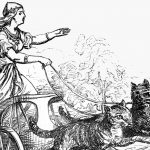
Start of Spring: An Invitation to Dream an Ode to Freya
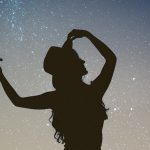
4 Features of the Dreams of the Crone
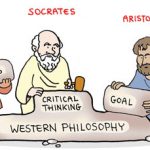
Four Smart Questions and Answers About Dreams You had not Thought of Yourself
Comments or suggestions? Share your thoughts:


